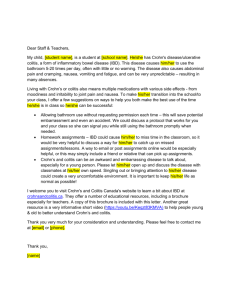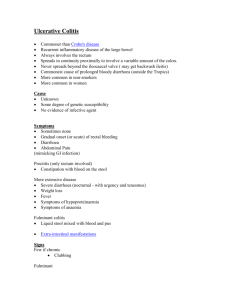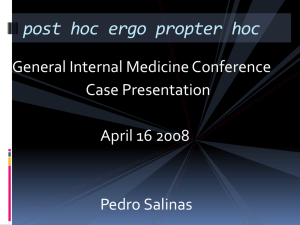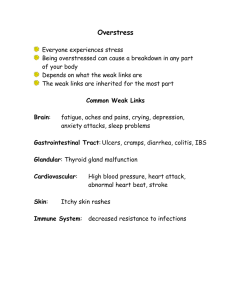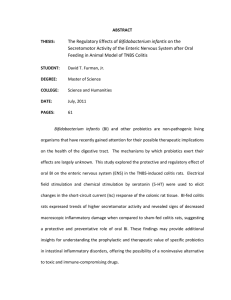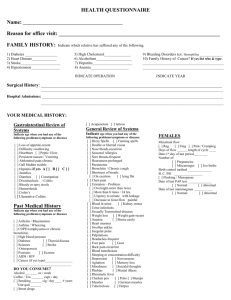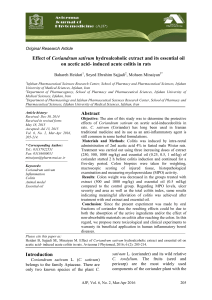Colitis There are several different types of Colitis, all of which are
advertisement
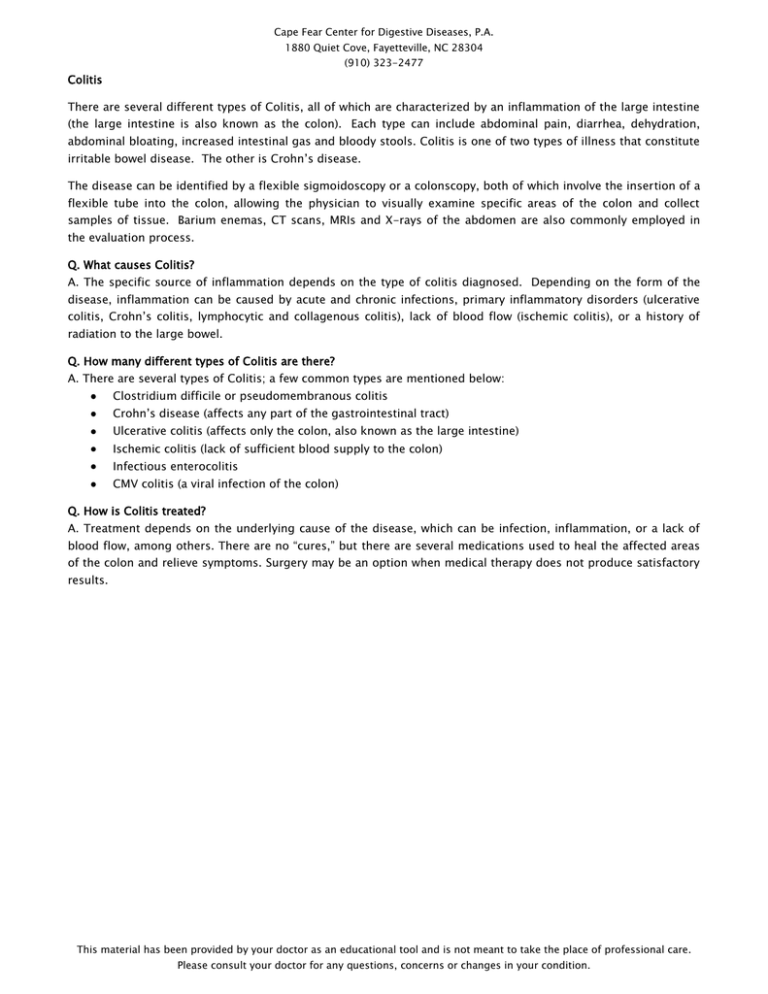
Cape Fear Center for Digestive Diseases, P.A. 1880 Quiet Cove, Fayetteville, NC 28304 (910) 323-2477 Colitis There are several different types of Colitis, all of which are characterized by an inflammation of the large intestine (the large intestine is also known as the colon). Each type can include abdominal pain, diarrhea, dehydration, abdominal bloating, increased intestinal gas and bloody stools. Colitis is one of two types of illness that constitute irritable bowel disease. The other is Crohn’s disease. The disease can be identified by a flexible sigmoidoscopy or a colonscopy, both of which involve the insertion of a flexible tube into the colon, allowing the physician to visually examine specific areas of the colon and collect samples of tissue. Barium enemas, CT scans, MRIs and X-rays of the abdomen are also commonly employed in the evaluation process. Q. What causes Colitis? A. The specific source of inflammation depends on the type of colitis diagnosed. Depending on the form of the disease, inflammation can be caused by acute and chronic infections, primary inflammatory disorders (ulcerative colitis, Crohn’s colitis, lymphocytic and collagenous colitis), lack of blood flow (ischemic colitis), or a history of radiation to the large bowel. Q. How many different types of Colitis are there? A. There are several types of Colitis; a few common types are mentioned below: Clostridium difficile or pseudomembranous colitis Crohn’s disease (affects any part of the gastrointestinal tract) Ulcerative colitis (affects only the colon, also known as the large intestine) Ischemic colitis (lack of sufficient blood supply to the colon) Infectious enterocolitis CMV colitis (a viral infection of the colon) Q. How is Colitis treated? A. Treatment depends on the underlying cause of the disease, which can be infection, inflammation, or a lack of blood flow, among others. There are no “cures,” but there are several medications used to heal the affected areas of the colon and relieve symptoms. Surgery may be an option when medical therapy does not produce satisfactory results. This material has been provided by your doctor as an educational tool and is not meant to take the place of professional care. Please consult your doctor for any questions, concerns or changes in your condition.
